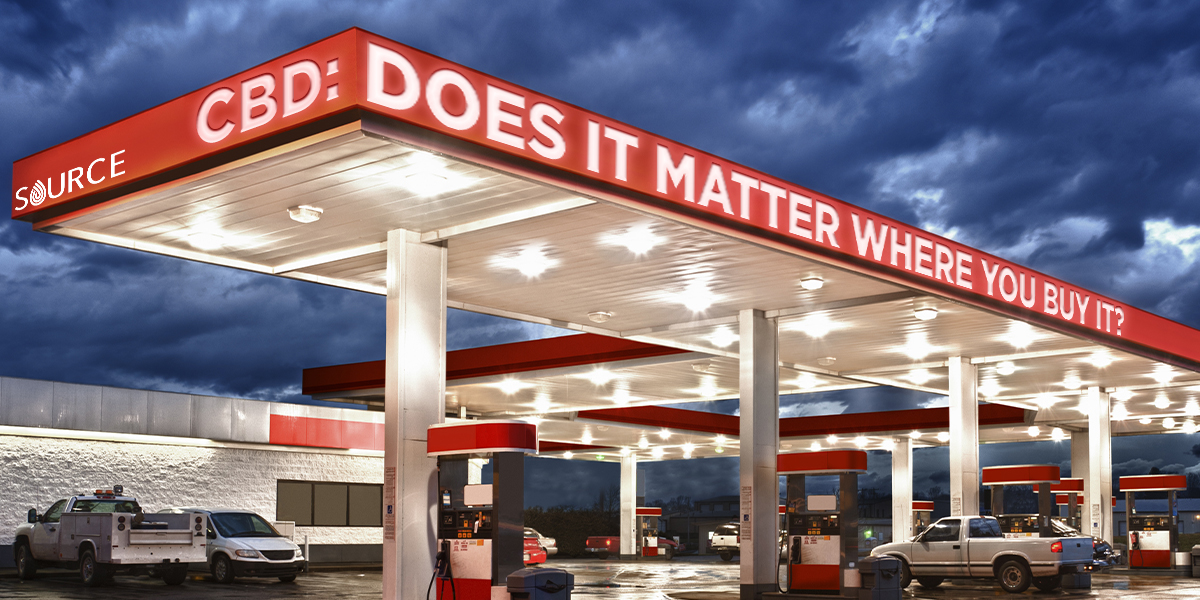CBD Oil News
Is Gas Station CBD Worth it: Why Quality Matters (& How to Find it)
We saw a press release recently about a well-known CBD company entering into an agreement with a convenience store chain. This had us thinking about gas station CBD, and whether or not going that route is a good idea.
Honestly, that used to be an easy question to answer. Now though, things have changed, and we know that there are some legitimate oils being sold at local corner stores.
But how can you tell which ones are actually worth buying, and which ones to leave on the shelf?
Gas Station CBD: Does it Matter Where You Buy it?
As mentioned, we used to be naysayers when it came to gas station CBD. It just seemed to be that low-quality oils were par for the course. Finding a decent one was like finding a needle in a haystack.
Why? Well, the FDA hasn’t released any federal regulations on CBD. This means that any company, be it a multi-million dollar one focused on top-notch quality and testing, or someone bottling a batch in their garage, can technically sell CBD. There’s no one keeping those ‘in-it-for-profit’ sellers in check. As a result, the CBD products you find in high traffic areas like gas stations, grocery stores, or shopping malls, are potentially risky, low-quality and unsafe products.
Those risks include higher than allowed THC levels, potentially harmful additives, or low-quality or non-organic hemp. Less risky, but still a problem, is that there may be lower than labelled CBD – so you’re not getting what you’re paying for.
The oils found in these spots were (and still are) easy to grab without much thought. And that’s an issue.
Now, we’d be remiss to say that all products are bad. They’re not! Many are a very good. You just need to be sure of the quality.
Separating the Good from the Bad
As high-quality oils become more accessible, it’s important to consider what sets those apart.
When it comes to gas station CBD, there are a few ways to spot a high quality oil.
The best CBD manufacturers take transparency very seriously, and will provide information to help you make an informed decision.
#1 – Source
Check the company’s website to see where the plants are grown and if they’re organic. Hemp absorbs toxins from the soil, so any pesticides or other chemicals used during cultivation can end up in your CBD oil.
READ THIS NEXT: Here’s more on why finding organic CBD is important.
#2 – Certificate of Analysis
This is crucial. A Certificate of Analysis (COA) is a document from an accredited laboratory that shows you exactly what’s in the bottle. This includes the quantity of various cannabinoids in a product, along with other possible contaminants. This proves that the potency and purity claims of the company are true.
READ THIS NEXT: Here’s what a COA looks like and how to read it.
#3 – Method of Extraction
The way CBD is extracted from the hemp plant determines both its cleanliness and purity. The best method, in our opinion, is supercritical CO2 extraction. It’s the cleanest and doesn’t use any solvents which can end up in the end product.
READ THIS NEXT: There are several different types of extraction, all of which impact quality.
Our best advice? Do your homework on the company before you buy. Some gas station CBD is worth it, there’s no doubt – just be sure it is before you cash out. And when in doubt, maybe skip the stuff on the shelf beside the chocolate bars and go with a company you know you can trust. The cleanest is CO2 extraction.

